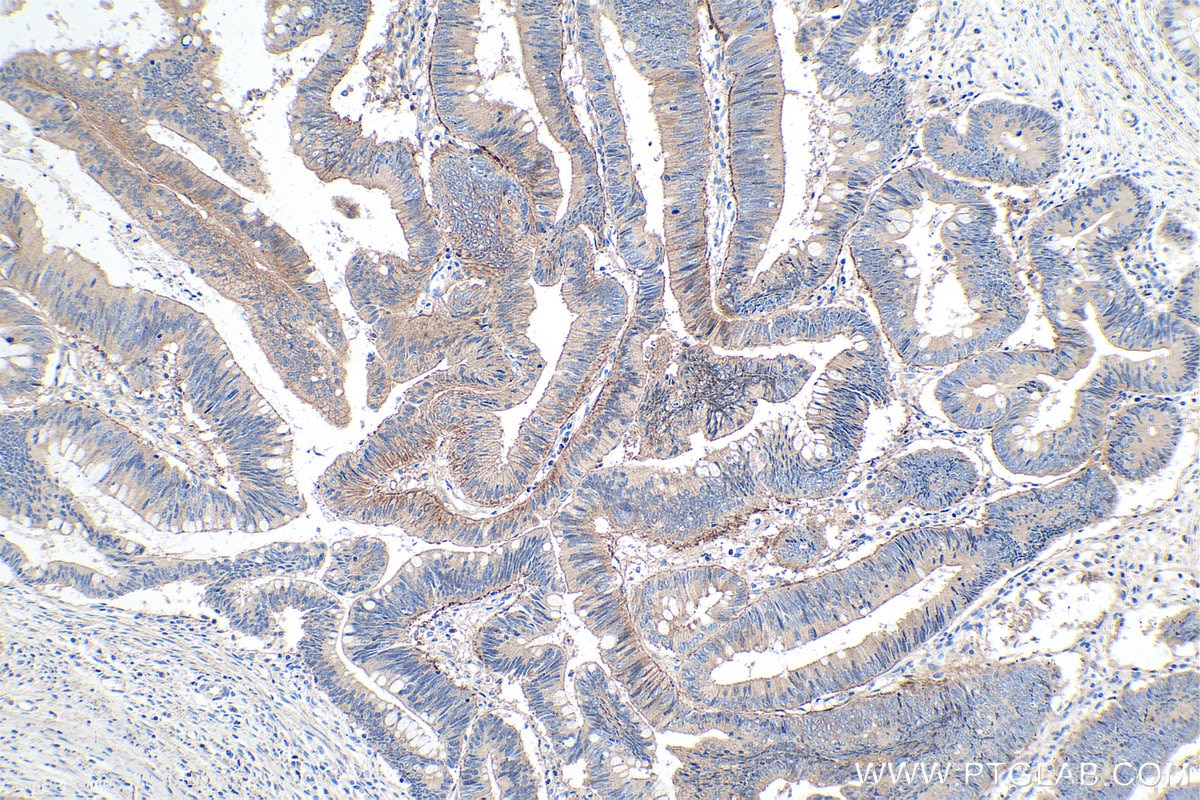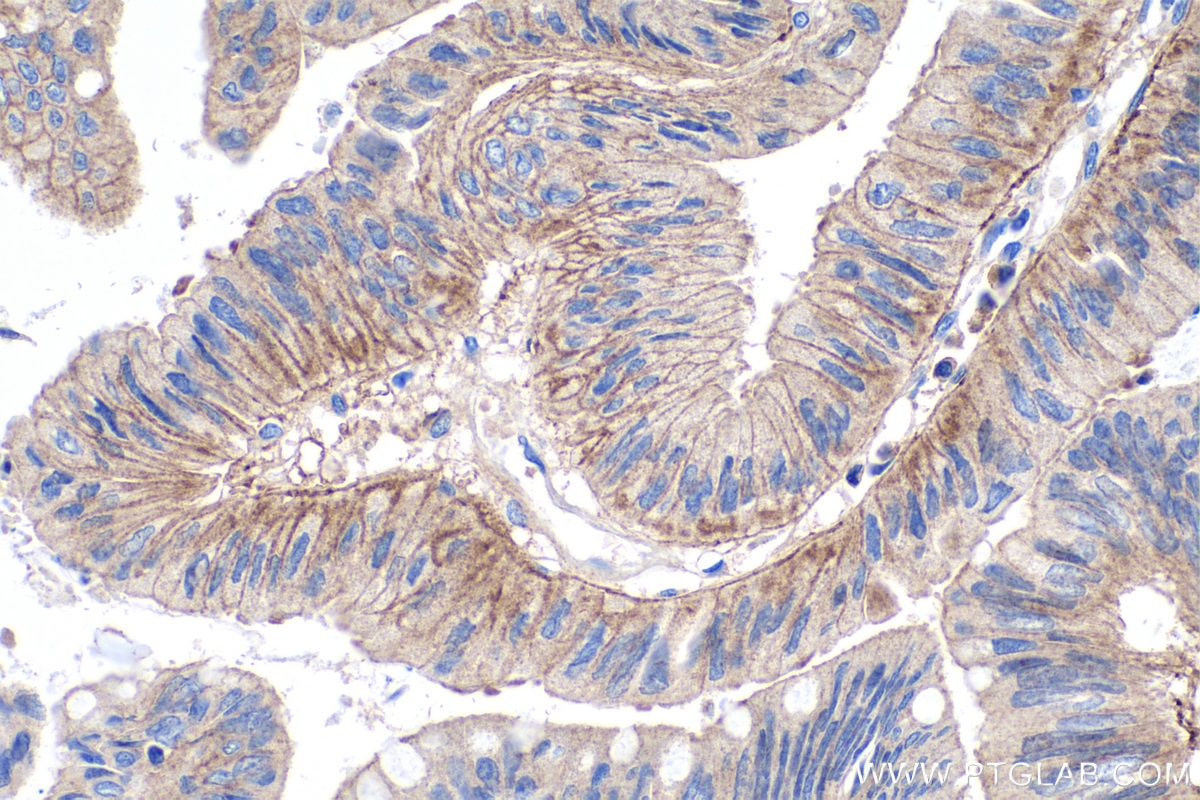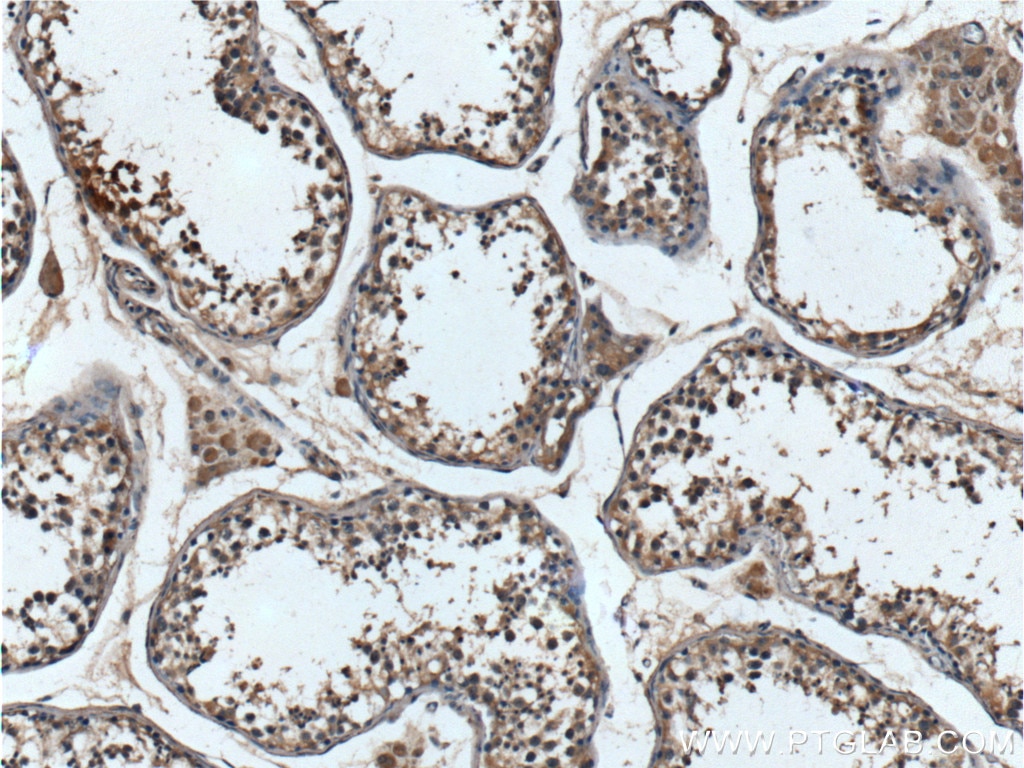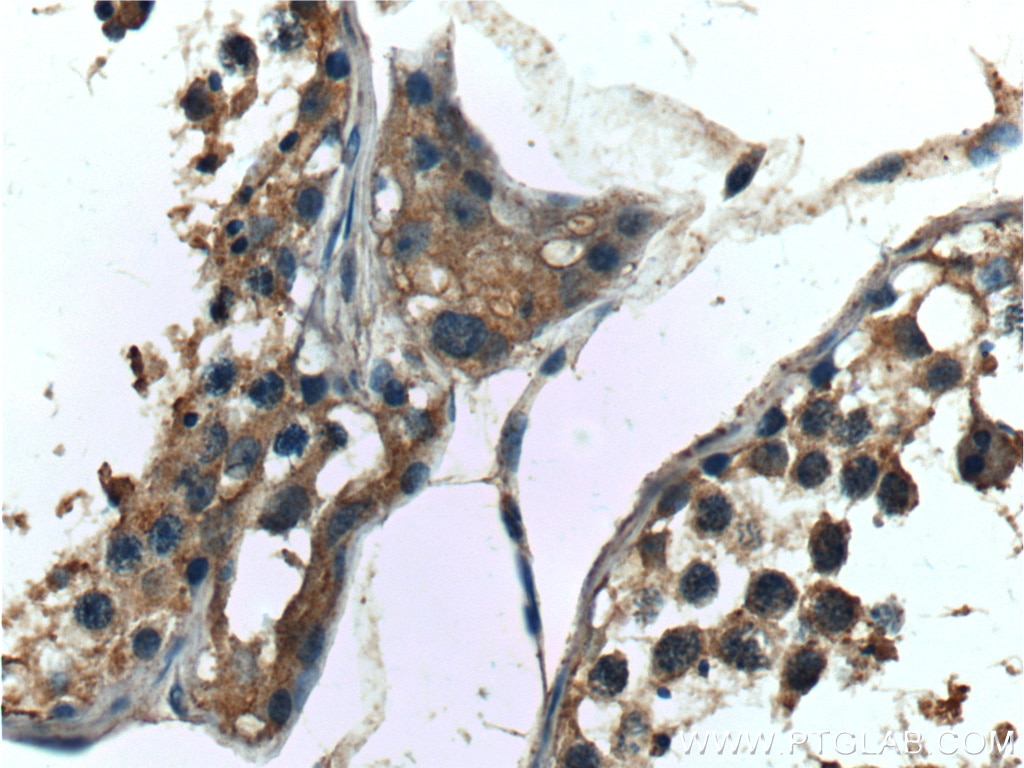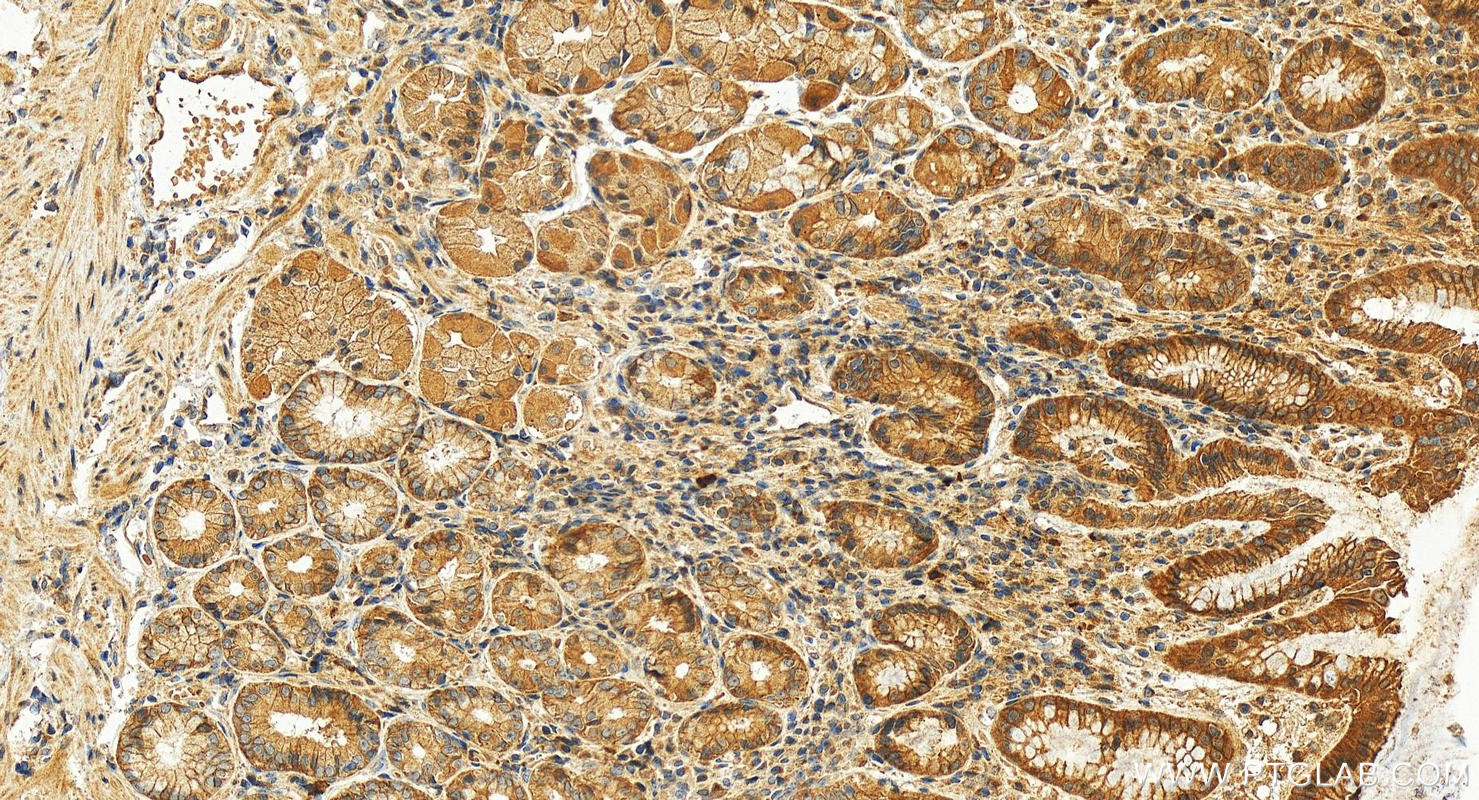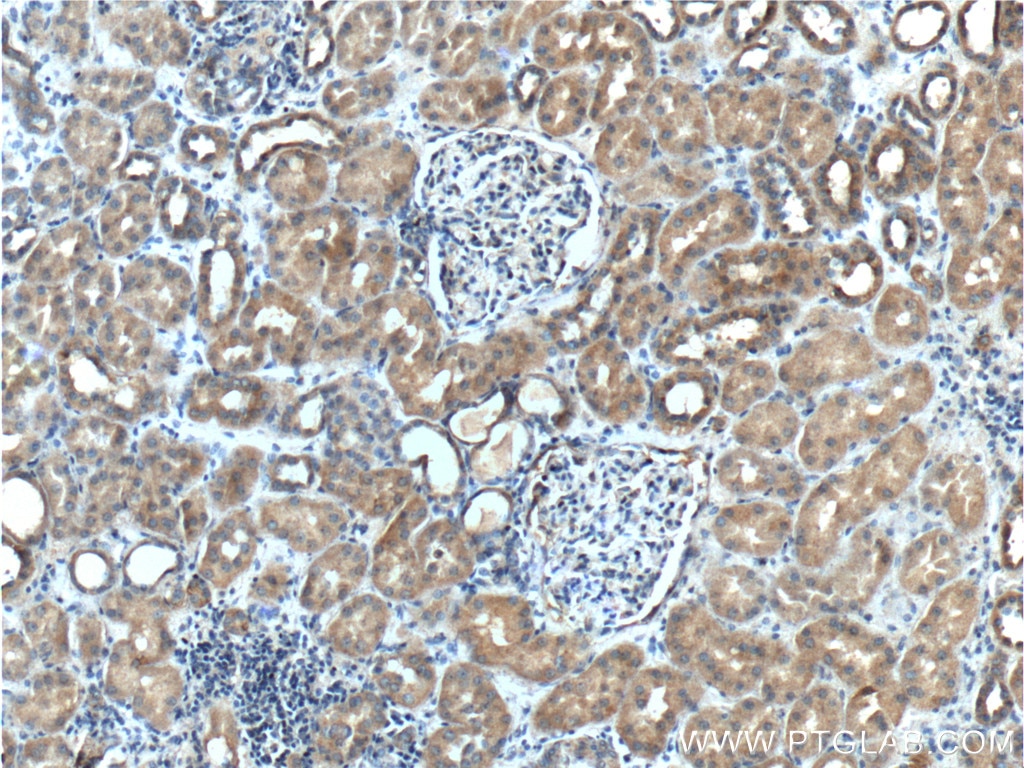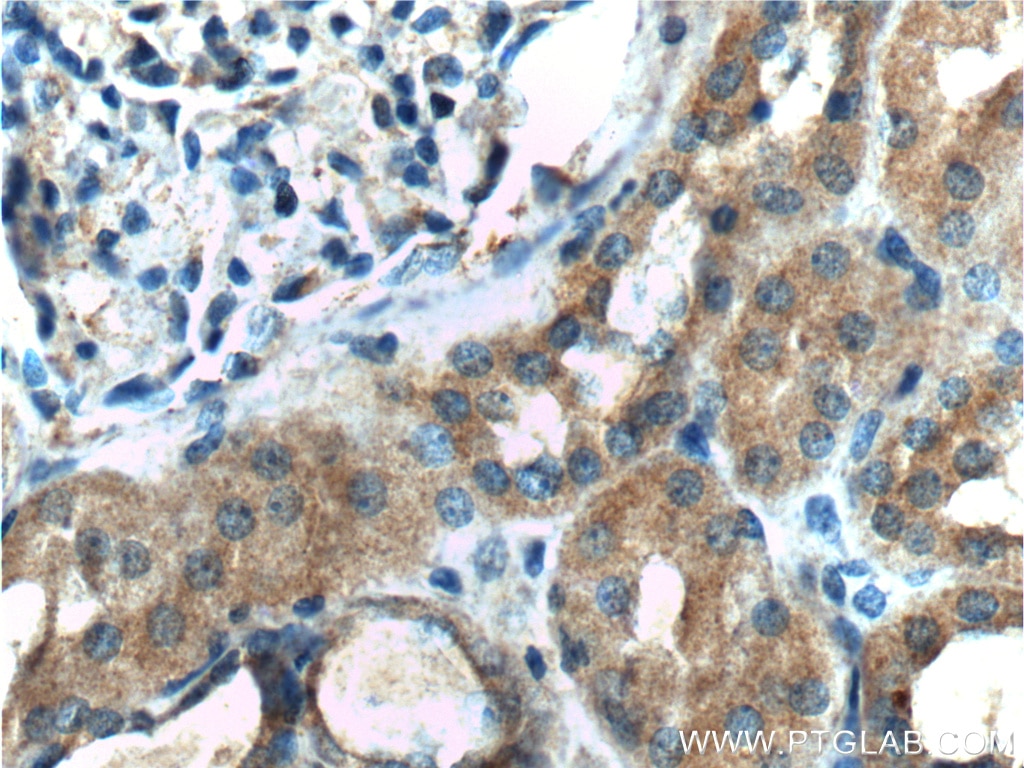Tested Applications
| Positive IHC detected in | human colon cancer tissue, human kidney tissue, human testis tissue, human stomach tissue Note: suggested antigen retrieval with TE buffer pH 9.0; (*) Alternatively, antigen retrieval may be performed with citrate buffer pH 6.0 |
Recommended dilution
| Application | Dilution |
|---|---|
| Immunohistochemistry (IHC) | IHC : 1:250-1:1000 |
| It is recommended that this reagent should be titrated in each testing system to obtain optimal results. | |
| Sample-dependent, Check data in validation data gallery. | |
Published Applications
| KD/KO | See 2 publications below |
| IHC | See 2 publications below |
| IF | See 2 publications below |
| CoIP | See 1 publications below |
Product Information
10536-1-AP targets DDR1 in IHC, IF, CoIP, ELISA applications and shows reactivity with human samples.
| Tested Reactivity | human |
| Cited Reactivity | human, mouse |
| Host / Isotype | Rabbit / IgG |
| Class | Polyclonal |
| Type | Antibody |
| Immunogen |
CatNo: Ag0794 Product name: Recombinant human DDR1 protein Source: e coli.-derived, PGEX-4T Tag: GST Domain: 4-403 aa of BC008716 Sequence: EALSSLLLLLLVASGDADMKGHFDPAKCRYALGMQDRTIPDSDISASSSWSDSTAARHSRLESSDGDGAWCPAGSVFPKEEEYLQVDLQRLHLVALVGTQGRHAGGLGKEFSRSYRLRYSRDGRRWMGWKDRWGQEVISGNEDPEGVVLKDLGPPMVARLVRFYPRADRVMSVCLRVELYGCLWRDGLLSYTAPVGQTMYLSEAVYLNDSTYDGHTVGGLQYGGLGQLADGVVGLDDFRKSQELRVWPGYDYVGWSNHSFSSGYVEMEFEFDRLRAFQAMQVHCNNMHTLGARLPGGVECRFRRGPAMAWEGEPMRHNLGGNLGDPRARAVSVPLGGRVARFLQCRFLFAGPWLLFSEISFISDVVNNSSPALGGTFPPAPWWPPGPPPTNFSSLELEPR Predict reactive species |
| Full Name | discoidin domain receptor tyrosine kinase 1 |
| Calculated Molecular Weight | 97 kDa |
| GenBank Accession Number | BC008716 |
| Gene Symbol | DDR1 |
| Gene ID (NCBI) | 780 |
| RRID | AB_2092081 |
| Conjugate | Unconjugated |
| Form | Liquid |
| Purification Method | Antigen affinity purification |
| UNIPROT ID | Q08345 |
| Storage Buffer | PBS with 0.02% sodium azide and 50% glycerol, pH 7.3. |
| Storage Conditions | Store at -20°C. Stable for one year after shipment. Aliquoting is unnecessary for -20oC storage. 20ul sizes contain 0.1% BSA. |
Background Information
DDR1, or Discoidin Domain Receptor 1, is a member of the receptor tyrosine kinase (RTK) family, which plays a significant role in various cellular processes including cell proliferation, adhesion, migration, and extracellular matrix (ECM) remodeling. DDR1 is known for its unique discoidin domain that allows it to bind specifically to certain collagens, initiating downstream signaling pathways that can lead to cell transformation and tumor progression. Abnormal activation of DDR1 is closely associated with the development of various solid tumors, and it has been shown that DDR1 can prevent immune cells from infiltrating triple-negative breast cancer (TNBC) and eliminate tumor cells.
Protocols
| Product Specific Protocols | |
|---|---|
| IHC protocol for DDR1 antibody 10536-1-AP | Download protocol |
| Standard Protocols | |
|---|---|
| Click here to view our Standard Protocols |
Publications
| Species | Application | Title |
|---|---|---|
Nat Commun Endothelial discoidin domain receptor 1 senses flow to modulate YAP activation
| ||
Bioact Mater Matrix stiffness exacerbates the proinflammatory responses of vascular smooth muscle cell through the DDR1-DNMT1 mechanotransduction axis.
| ||
J Exp Clin Cancer Res High expression of DDR1 is associated with the poor prognosis in Chinese patients with pancreatic ductal adenocarcinoma. | ||
Exp Cell Res Downregulation of CYRI-B promotes migration, invasion and EMT by activating the Rac1-STAT3 pathway in gastric cancer |
Reviews
The reviews below have been submitted by verified Proteintech customers who received an incentive for providing their feedback.
FH Marisa (Verified Customer) (10-02-2025) | Worked very well
|

